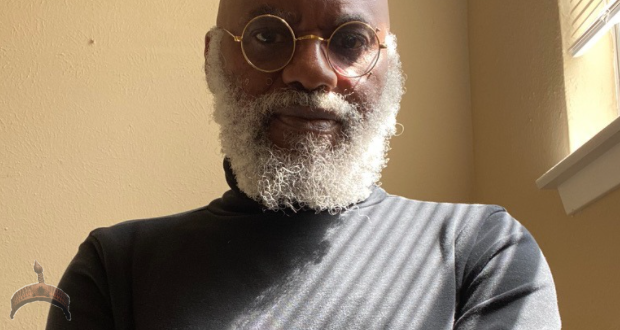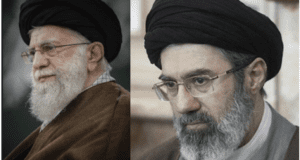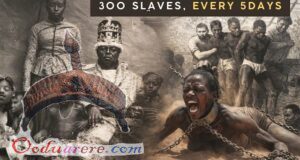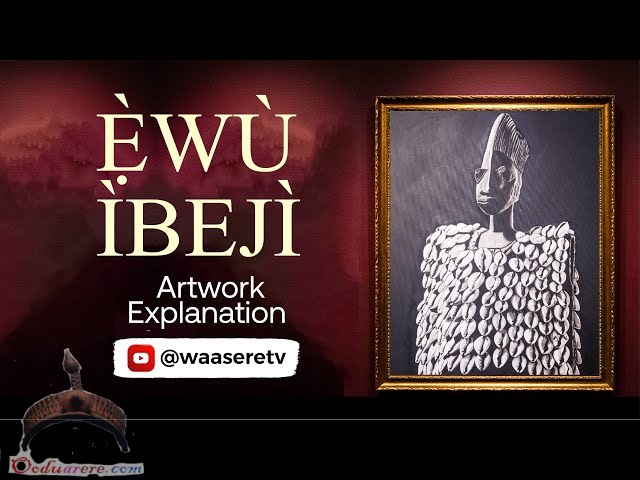By Prof. Moyo Okediji
For the first time in my life, I traveled out of Nigeria in 1983 to visit London for a solo exhibition of my work at the Africa Center.
Rufus Orisayomi had arranged the exhibition for me.
Tunde Fagbenle and his wife, Ally Bedford, offered to host me at their home.
Ally was writing a Master’s thesis on my work, therefore, it was convenient for her to keep me close by to enable her to have access to me for clarifications when needed.
Tunde Fagbenle, the King of Boys, was just being his usual generous self.
He would give us the last piece of meat in his pot without hesitation.
And he would make the gesture seem like nothing.
That was the only reason Fagbenle threw open the doors of his flat at Notting Hill Gates to me.
How was I to know that what he was doing for me was extraordinary?
He made the extremely generous gesture seem like nothing.
In addition to me, he also hosted an elite Yoruba family on vacation in London, a really nice couple with two children.
I developed friendships with the Yoruba family, and we discussed lots of trivial things daily. They came to London to shop, loaded with plenty of Naira notes.
That was a time when the naira and the dollar were more or less equal in value.
But I later discovered that their two children could not speak a word of Yoruba, though the parents were fluent, even quite masterful, in Yoruba.
The children, a boy and a girl, were between six and ten years old. I will call them Bayo and Ronke. I have forgotten their actual names.
“Why haven’t you raised Ronke and Bayo to speak Yoruba,” I asked the father as he was bandying Yoruba proverbs with me. He and his wife were from Ogbomoso.
“We want them to be perfect in speaking the English language,” the man said. “If they learned to speak Yoruba, their English would be tainted.”
I thought it was a stupid idea, but didn’t say a word because they were strangers to me, and as a Yoruba person, I wanted to be an ọmọlúwàbí and keep things polite.
Ronke and Bayo called me “Uncle Moyo.”
They were lively and intelligent kids. They were interested in my drawings and I explained to them that I had an exhibition up at the African Center.
They said they would like me to take them to see the exhibition.
The third day after the Yoruba family arrived, Tunde’s wife, Ally, announced that her sister was visiting. When Ally’s sister arrived, I noticed that she looked like a replica of Ally, and she brought her son, Mark (I believe that was his name), with her.
Mark was very friendly, always smiling, and inquisitive about me. He was interested in knowing how I made the hand-crafted textile that I wore. We began to chat.
The Yoruba family was out when Mark and his mother arrived.
Soon, the Yoruba family returned from shopping, loaded with large shopping bags and boxes. The parents carried all the load and their children, Ronke and Bayo, sauntered in carrying nothing.
Ronke and Bayo rushed to me and hugged me, “Uncle Moyo!” they both cried excitedly. Their parents went into their room, lugging their loads with them.
Mark was playing with me, as Ally and her sister were catching up in another room. Mark was telling me of his passion for drumming.
He was excited to see Ronke and Bayo. He left me and joined them and the three of them went off leaving me alone.
I retrieved my sketchpad and started drawing.
But I soon noticed some tension and lack of communication between them.
Why?
Mark spoke Queen’s English, being the son of a wealthy British businessman. Ronke and Bayo spoke English with a thick Ibadan accent.
It was as if they were speaking two different languages. A dialog was impossible between them.
“Moyo,” Mark said in his Queen’s English, “I don’t understand what they are saying!”
He was truly frustrated.
“Ọ̀rọ̀ pèsì jẹ,” I told the three of them. They looked at me, blank.
What is “Ror besise?” Mark asked Ronke and Bayo.
They shrugged.
I shook my head with a smile.

 Ọmọ Oòduà Naija Gist | News From Nigeria | Entertainment gist Nigeria|Networking|News.. Visit for Nigeria breaking news , Nigerian Movies , Naija music , Jobs In Nigeria , Naija News , Nollywood, Gist and more
Ọmọ Oòduà Naija Gist | News From Nigeria | Entertainment gist Nigeria|Networking|News.. Visit for Nigeria breaking news , Nigerian Movies , Naija music , Jobs In Nigeria , Naija News , Nollywood, Gist and more









https://t.co/b6QkgDqr1f